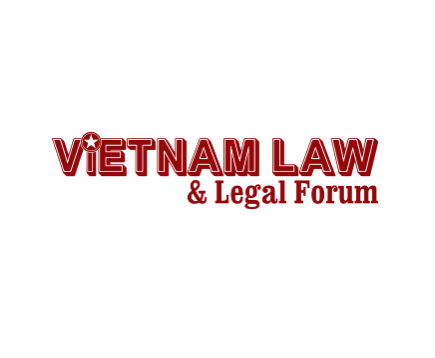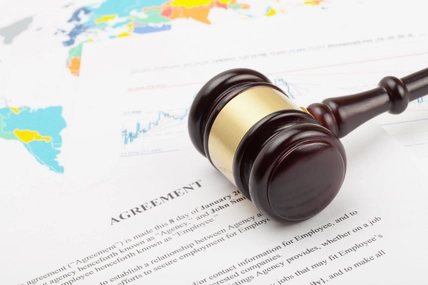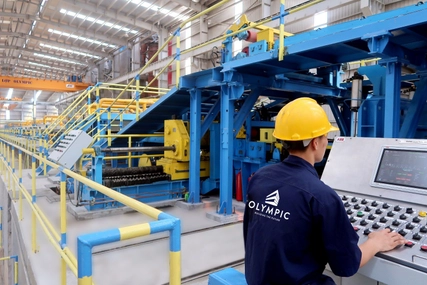The Ministry of Finance has recently submitted the Government a draft resolution on the imposition of top-up corporate income tax under the Global Anti-Base Erosion (GloBE) model rules, which is expected to be adopted by the National Assembly for application from the beginning of next year.
The Ministry of Finance (MOF) has recently submitted to the Government a draft resolution on the imposition of top-up corporate income tax under the Global Anti-Base Erosion (GloBE) model rules, which is expected to be adopted by the National Assembly for application from the beginning of next year.
Accordingly, the Vietnam-based constituent entity or group of Vietnam-based constituent entities of a multinational enterprise (MNE) group that earns an annual revenue of EUR 750 million or more as stated in the consolidated financial statements of the ultimate parent entity in at least two out of the four fiscal years preceding the tested fiscal year would be liable to a qualified domestic minimum top-up tax (QDMTT).
_0509142240.jpg)
In case the Vietnam-based constituent entity’s or group of Vietnam-based constituent entities’ revenue reaches the threshold under the GloBE rules and the actual corporate income tax rate applicable to the MNE group is lower than the global minimum tax rate, its QDMTT in Vietnam would be calculated according to the following formula:
QDMTT = (Top-up tax percentage x Excess profit) + Additional current top-up tax (if any)
In which:
Top-up tax percentage = Minimum rate - Effective tax rate
The effective tax rate is 15 percent
The MOF explains that if applying the QDMTT rule, Vietnam would have the right to levy tax, thus limiting tax loss. It would help ensure progress and transparency of the tax administration system and business investment environment in line with international standards. At the same time, the country may also retain the current preferential policies applicable to businesses not subject to the global minimum tax.
The draft resolution also provides for the income inclusion rule (IIR), saying that an MNE group’s ultimate parent entity, partially owned parent entity or intermediate parent entity in Vietnam that directly or indirectly holds ownership in an overseas low-taxed constituent entity at any time during the fiscal year would have to declare and pay a top-up tax based on its allocable share of the top-up tax of the overseas low-tax entity in the fiscal year, unless the top-up tax is paid in a country that have regulations on priority qualified IIR compliant with the order of priority under the GloBE rules. This regulation would not apply to the Vietnam-based constituent entities of the ultimate parent entity, partially owned parent entity or intermediate parent entity.
The top-up tax under the IIR would be determined as follows:
Jurisdictional top-up tax = (Top-up tax percentage x Excess profit) + Additional current top-up tax (if any) - Domestic top-up tax (if any)
In which:
Top-up tax percentage = Minimum rate - Effective tax rate
The effective tax rate is 15 percent
According to the MOF, the IIR is expected to help Vietnam increase the state budget revenue with the top-up tax collected from Vietnamese groups investing offshore, ensure equality between domestic and foreign investors, direct and indirect investors, and prevent Vietnamese MNE groups from committing profit shifting and transfer pricing to evade taxes.
A taxpayer would not be liable to the top-up tax under the QDMTT rule or IIR in the fiscal year if satisfying two requirements (i) having average revenue of under EUR 10 million and (ii) obtaining average income of less than EUR 1 million or suffering financial loss.
The time limit for submission of declaration and payment of the top-up tax for a fiscal year would be nine months, for those liable to tax under the QDMTT rule, or 15 months, for those subject to the IIR, counting from the last day of that fiscal year.
In case an MNE group has more than one constituent entity liable to pay tax in Vietnam, the ultimate parent entity in the host country would have to designate one of its constituent entities to declare and pay top-up tax under the GloBE rule, otherwise the Vietnamese tax authority would do so.
Entities not liable to the GloBE rules would be governmental entities, international organizations, not-for-profit organizations, pension funds, investment funds being ultimate parent entities, real estate investment organizations being ultimate parent entities, or entities with at least 85 percent of the value owned directly or indirectly by one or more than one excluded entity.











